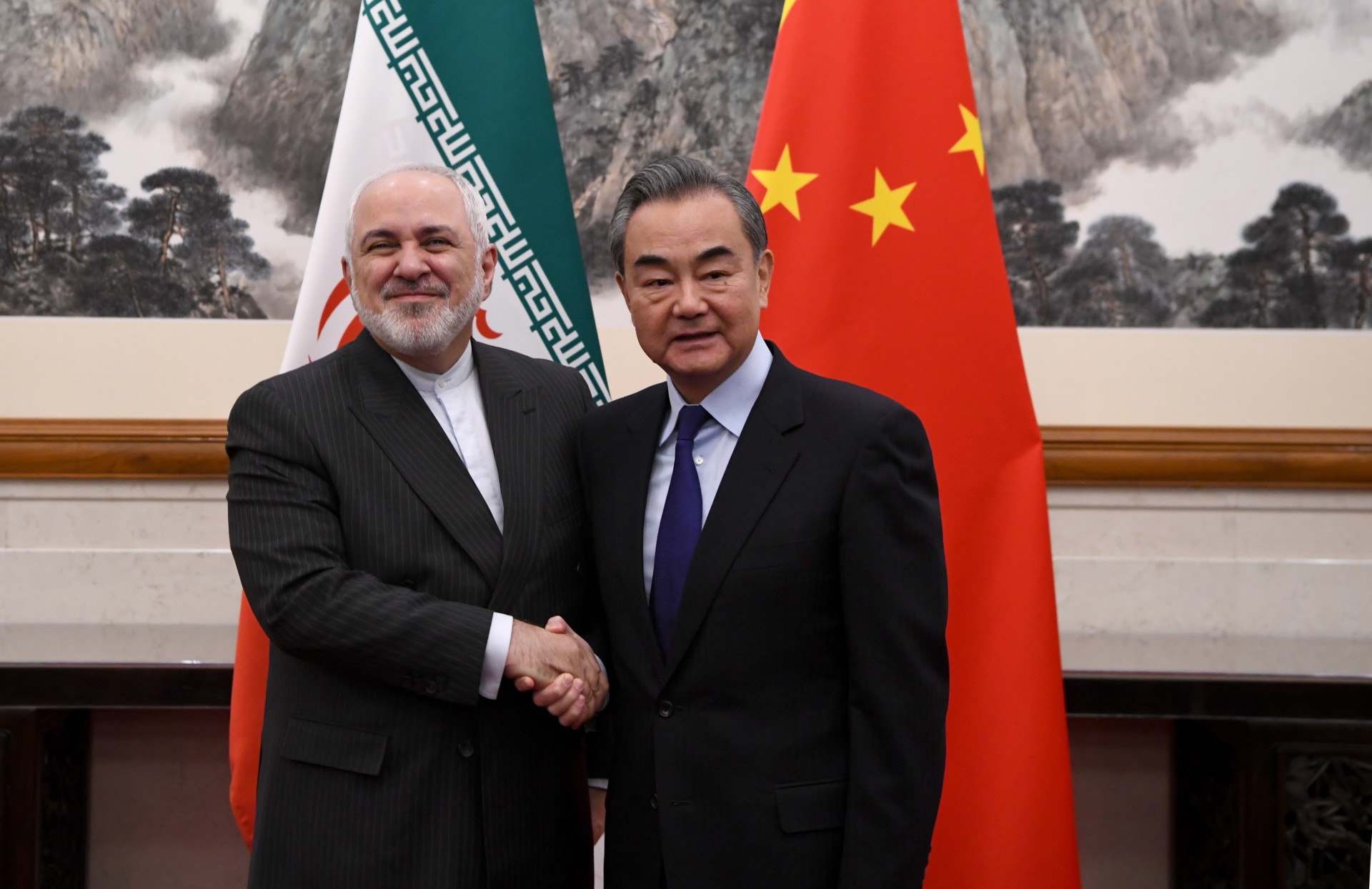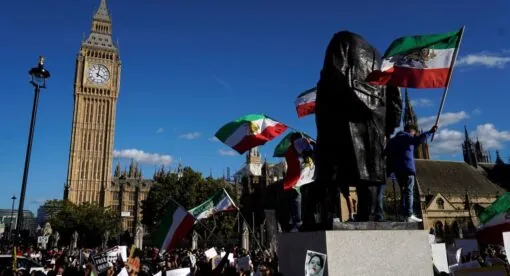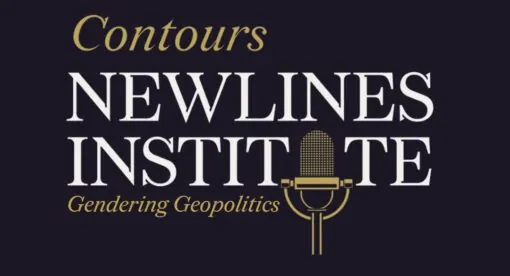The impending announcement of a series of Sino-Iranian agreements marks China’s opening shot against the United States in the Middle East as the global rivalry between Washington and Beijing heats up and expands to a new theater. U.S. officials have voiced concerns about China’s presence in the Middle East, and Secretary of State Michael Pompeo traveled to Israel to limit China’s presence there. However, these agreements dwarf anything that China has done in the Middle East and mark a great leap forward in its direct challenge to the United States and its support for Iran’s aggressive policies in the region. China clearly feels that it can defy the U.S. sanctions imposed on countries that deal with Iran and that the gains that will come with these projects will outweigh the costs, which undoubtedly will include new sanctions.
The Sino-Iranian accords include trade and military deals and represent, in their totality, a comprehensive entente between Beijing and Tehran that will give China enormous and multi-dimensional long-term influence in Iran. These agreements also create a springboard for future large-scale and multi-dimensional Chinese involvement in other Middle Eastern states. Meanwhile, Iran will gain the wherewithal to continue both its increasingly overt nuclear program and its “gray zone” challenges to other Middle Eastern countries and the United States.
What the Agreements Entail
The economic scope of these deals is breathtaking. China will build about 100 different projects in Iran, including high-speed railways and subways, and free trade zones in Maku, Abadan (where the Shatt al-Arab River flows into the Persian Gulf), and on the Gulf island of Qeshm. China will also build infrastructure for a 5G telecommunications network and offer the Beidou satellite system and accompanying GPS to enable Iran to assert more control over its cyberspace as China has done.
These deals presage an enormous expansion of China’s Belt and Road Initiative – a project that has been a hallmark of Chinese foreign policy under President Xi Jinping – through Iran into the greater Middle East. But the enhancement of the quality of Iranian telecommunications also greatly strengthens its ability to defend against cyber threats and to thwart U.S., Israeli, and Western initiatives to block its nuclear program.
These agreements also give China access to Iranian ports. Specifically, China will gain access to two ports along the coast of the Sea of Oman. The Chinese presence at Jask, just outside the Straits of Hormuz, gives Beijing unprecedented access to the Persian Gulf and a listening capability there. This presence not only fits with the Belt and Road Initiative, it is also part of the “String of Pearls” of ports that China is building or taking over from its shores through the Indian Ocean all the way to the Horn of Africa and beyond. China has bought equity in the ports of Rotterdam, Hamburg, and Antwerp, as well as ownership of the ports of Kumport (Turkey’s third-largest port), Haifa in Israel, and Piraeus in Greece. The Haifa deal alarmed U.S. officials and was one reason for Pompeo’s trip to Israel; Haifa was a British army base during the British Mandate in Palestine and could serve as a military base again.
This military concern applies now throughout the entire expanse of this string of pearls – which, with China’s access to Iran’s ports, will have a connection to the Persian Gulf. There is no sign yet of any military impact because of these Chinese acquisitions. However, the C4ADS (Center for Advanced Defense Studies) think tank recently reported that Chinese law obligates all Chinese-owned commercial ports to provide logistical support for the People’s Liberation Army if needed. Indian analysts worry about this with regard to Pakistan and China’s presence at the port of Gwadar.
Obviously, the expansion of China’s network to Djibouti and into the Mediterranean, taken in the context of the unrelenting buildup of China’s naval, amphibious, and power projection capabilities, can only increase concerns in Washington, the West, and across the Middle East. Since China has participated in joint naval exercises with Iran three times since 2014 – the last one being in December 2019 with the Russian navy in the Gulf of Oman – fears of a Chinese naval presence in the Gulf and Middle East are amply justified. Moreover, China’s access to Iran’s ports raises concerns about Beijing’s potential leverage upon energy supplies emanating from the Gulf, currently the largest regional supplier of Chinese energy (although Russia has overtaken Saudi Arabia in regard to oil).
The highly developed Iranian sense of nationalism has already emerged in objection to the port access, charging the government with “selling off” parts of the country. The critics have cited cases like Sri Lanka and its port of Hambantota, in which Chinese partners fell into a debt trap, obligating them to sell equity or even ownership for debt relief. However, the deals between China and Iran have not yet been formally approved, so there is a chance that something may go wrong between Tehran and Beijing or within Iranian domestic politics to nullify the agreements or prevent their ratification. The dire economic straits in which the Iranians find themselves due to the U.S.-led international sanctions suggest that these agreements will likely materialize.
The Sino-Iranian Deals in Context
Moreover, we must assess these deals and the huge impending Chinese presence in the broader light of both Iranian and Chinese policies. In Iran’s case, the huge infusion of cash it expects to receive will mostly go toward military construction and aggressive behavior abroad, such as its forces or proxies in Iraq, Syria, and Lebanon, and its continued missile and drone shipments to Yemen. Additionally, Tehran has clearly accelerated its nuclear program and blocked the International Atomic Energy Agency access that was part of the Joint Comprehensive Program of Action. A nuclear Iran poses a mortal or existential threat to every other Middle Eastern state, not just Israel, as Iran seeks to subvert Saudi influence.
Equally disturbing is that China’s support for Iran, as expressed in these deals, represents open support for its nuclear program and suggests that in its conflict with the United States China will more fully embrace support for nuclear proliferators like Iran and North Korea. Iran and China’s relations and policies do not stop here. China’s global efforts to acquire controlling stakes, or at least equity, in major ports has led Beijing to seek allies and markets in 65 countries. Its Middle Eastern acquisitions are only part of a larger grand design. The network of Chinese ports could substantially augment China’s global power projection capability.
Other military challenges are equally conceivable. The Pentagon reports that Beijing and Moscow now plan to sell Iran fighter jets, main battle tanks, helicopters, and modern naval capabilities. The joint naval exercises in December 2019 displayed Sino-Russian cooperation with Iran in naval affairs, and China will likely find it beneficial to defend its already large investment in Iran by selling the Iranians arms. Additionally, U.S. analysts are now reporting about a so-called triad of disinformation wherein Iranian, Russian, and Chinese messaging is following parallel or converging lines against the United States, raising specters of collaboration in an information war against Washington and its allies.
China’s Larger Strategy in the Middle East
These new deals with Iran greatly expand China’s presence in the Middle East, but Iran is not the only country where China is investing large sums. Beijing has also recently expanded its ties with the United Arab Emirates. In November 2019, Hezbollah chief Hassan Nasrallah appealed to China to rescue Lebanon, whose economy is in dire straits, and China appears ready to move in that direction. If China does answer Hezbollah’s request for aid, its leverage across the Iranian sphere of influence in the Arab world will grow.
This could also lead to an enhanced, if still concealed, influence over developments in Syria through Iran and Lebanon. It is no secret that Russia has long sought Chinese support for the reconstruction of Syria, which it cannot undertake by itself; China is expressing new interest in undertaking that reconstruction.
Thus, China’s forthcoming deals with Iran appear to be part of a larger strategy for enhancing Beijing’s economic, political, and ultimately military presence in the Middle East. The pattern of going from economic presence through political influence to enhanced defense capabilities appears to be pervasive in Chinese foreign policy. But in tandem with Iran’s nuclearization and attacks on the status quo in the Middle East, this new alignment with China will introduce many new and disturbing trends to what is already a highly volatile region.
Dr. Stephen Blank is a Senior Fellow at the Foreign Policy Research Institute (FPRI). Dr. Blank is also an independent consultant working with various U.S. government and corporate clients and a former professor at the U.S. Army War College. Blank has authored hundreds of foreign policy-related articles, white papers, and monographs – specifically focused on the geopolitics and geostrategy of the former Soviet Union, Russia, and Eurasia.
The views expressed in this article are those of the author and not an official policy or position of the Newlines Institute.







